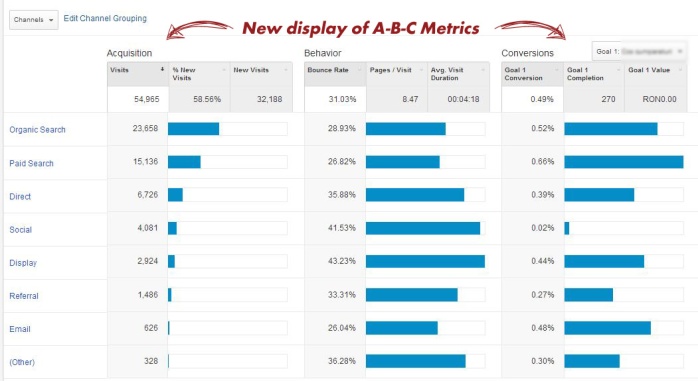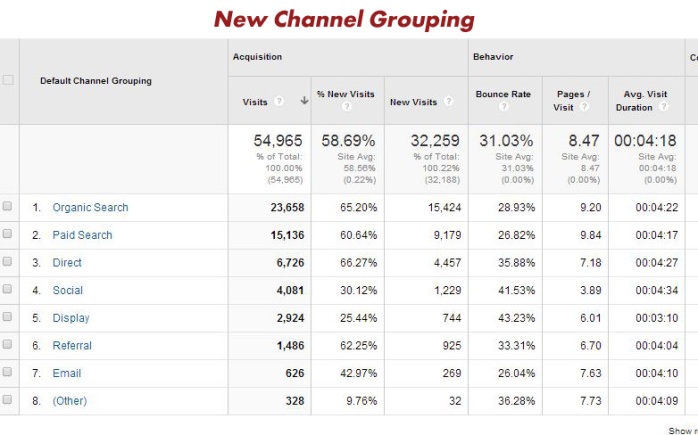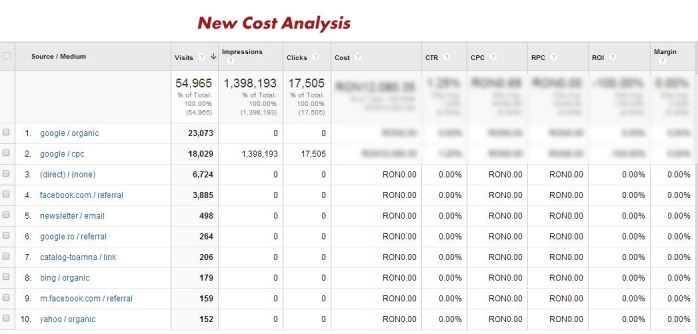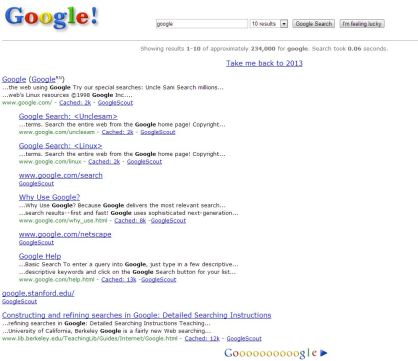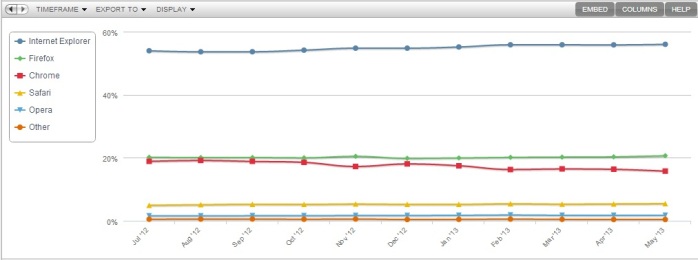IT skill in demand for 2014
Culori in publicitate – varianta Utopium
Mass marketing vs. Personalization Infographic
The ABCs of Google Analytics
As announced at the #GASummit 2013 Google rolled out Acquisition, Behaviors & Conversions display under the Acquisition tab. This contains some of the most popular reports in Analytics that are accessed daily by users and it just got a facelift to provide a window on users’ Acquisition-Behavior-Conversion (ABC) cycle: how you acquire users, their behavior on site after acquisition, and their conversion patterns. They replaces the ‘Traffic’ Sources’ section on the left hand navigation.
Find out more about the latest updates in Google Analytics like new Audience Reporting, APIs for Enterprise and the new educational initiative, Analytics Academy, Google’s online learning platform or MOOC (massive, open, online course) in this article The rundown: New products and features announced today at the #GASummit 2013
Google in 1998
1913 vs 2013, a Visualy infographic
Internet Explorer 6 Countdown
Just so you know, I work closely with a web-dev team and I feel their pain when it comes to cross-browser compatibility adjustments and the long hours spent on testing. Sometimes these hours can’t be billed to the customer as he will argue that he pays for only one website that has to work on every browser. This is what the numbers look like: may 2013 – 6,3% IE6 worldwide share. Source: ie6countdown.com
What can you do?
You can engourage visitors to upgrade or switch browsers by displaying a message on your website telling users that the best way to view your page is by using a modern browser. ie6countdown.com is offering a step-by-step configuration for displaying the following message.
![]()
But how does the internet browser market look like? Here is a glance at Romania’s market. You can set the filter for your country as well.
What is (not provided) in Google Analytics?
Maybe you’ve heard of a little website called www.notprovidedcount.com and as a webmaster or an internet business owner that has the slightest curiosity to find out where their traffic comes from you’ve seen in your Google Analytics account, under the keyword data filtering, the words (not provided).

not provided in GA
As you will find out from this website Google started to show (not provided) 592 days ago and based on the current rate of growth from 60 websites they monitor it will reach 100% in 28th February 2016. Mind you these numbers are constantly updated and if you check them out when you read this you might get different results for the 100% target date.
What got my attention was a huge drop on 1st of june in most of the monitored websites for the (not provided) count. This might just be a glitch but I haven’t yet found anything on this subject.
Why is this data shown as (not provided)?
Let’s say you log in to your Google account via Gmail, Google chrome or another Google product. This enables a secure connection or SSL over the browser and the refferral data pointing to your search is therefore hidden. This data includes useful information like the keywords used to perform that search. Google can still see this information, but website owners – and Analytics account holders – can’t access it. Why is this data usefull for a website owner? If your business relies heavily on internet users you most definetley want to estimate the traffic and sales each keyword is providing you.
How to extract keywords
The good news is there are several ways to work around this like linking your Adwords and Webmaster tools accounts to Google Analytics. A good way to start is kissmetrics’ blog where you will find Google’s take on this subject as well as tips from Dan Baker’s e-consultancy blog and a technique from Avinash Kaushik.
Getting nostalgic about Internet Explorer 6 times?
Why you should use Search Terms Tool in Adwords
If you are running a Google Adwords PPC campaign you are probably concerned about the way your money is spent. It’s just not enough to bid on some keywords and hope that everything will work out. That is what I did at first only to realize the inefficency of just spraying my budget at some general terms and hoping to get relevant traffic for my business. Actually that is how outbound marketing works: make an ad, show it to as many people as you can for a certain amount of money. But now digital advertising takes us in the realms of inbound marketing: targeting specific users with specific ads thus driving relevant traffic to your website.
How can the Adwords Search Terms Tool help me?
Here is why I think inspecting how your Search Terms perform in Adwords is one of the most important thing to do:
– you can increase your ad’s quality score
– avoid irrelevant or non-converting traffic
– extend Adwords ads in your budget bracket
To maximize the efficiency of this tool you should set up conversion tracking.
In the image below you can see wehere to find your search terms list. If you select keyword details and all you will see all of your search terms, if you tick one or more of your keywords on the left, then go to keyword details and selected you will only see the details for that (those) specific keyord(s).
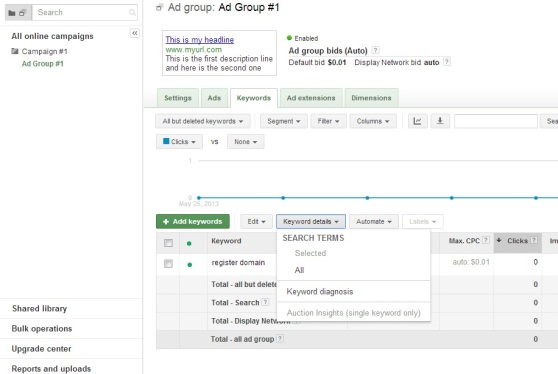
adwords search terms
What insights can the Search Terms tool offer?
Let’s say you start an ad with the broad match term buy fruits and after a couple of days you want to see how this keyword performed. You see you got a lot of clicks but what where the terms people searched for? Using your Search Terms tools you can see what were the exact words that got you traffic, for the example’s sake let’s say [buy fresh fruits] and [buy sundried fruits]. If you are selling only fersh fruits it’s only common sense to exclude the second term as it gets you traffic that’s not relevant for your business.
I hope this will help you out with your Adwords campaigns. It did wonders for me!



